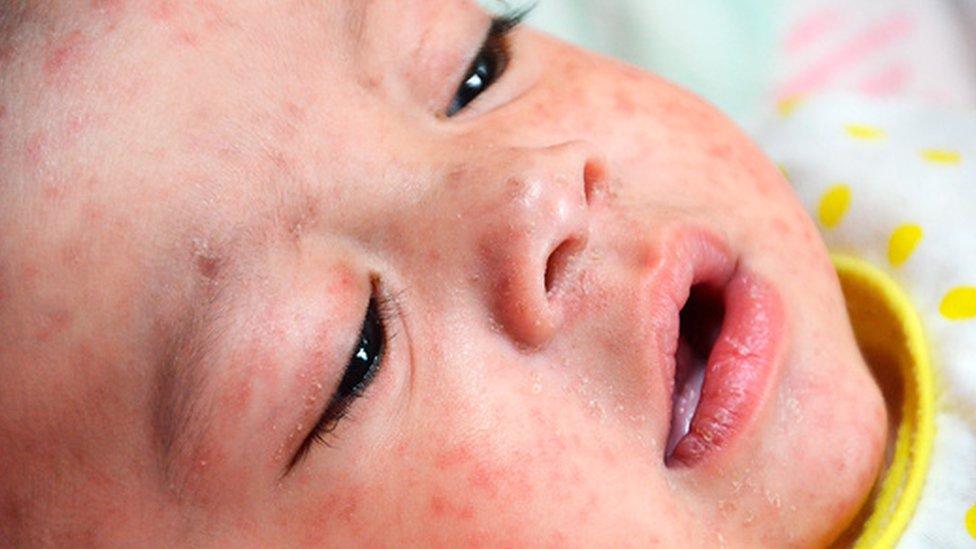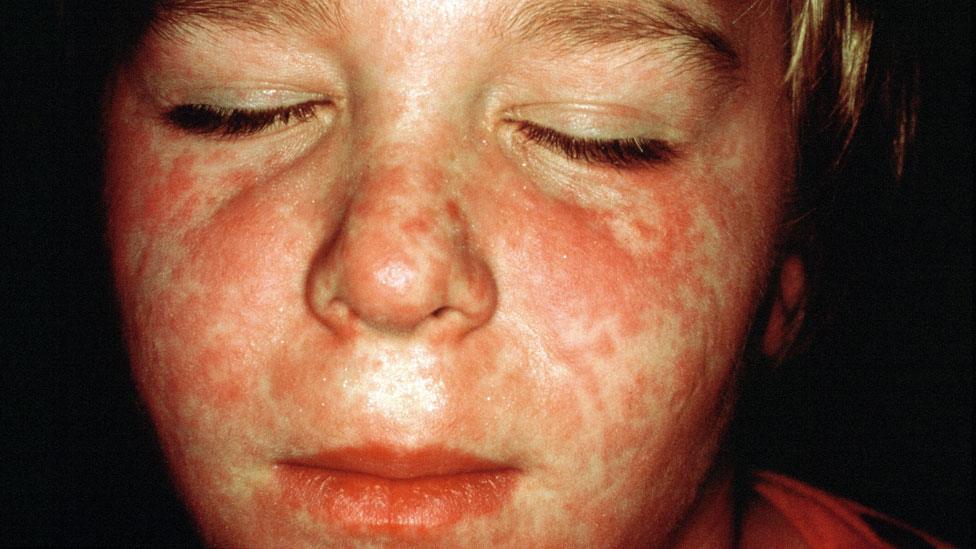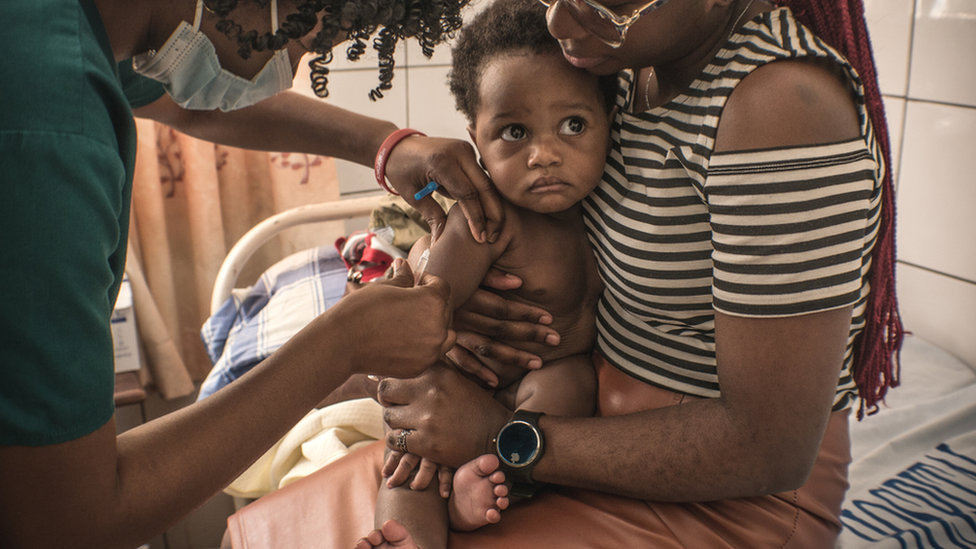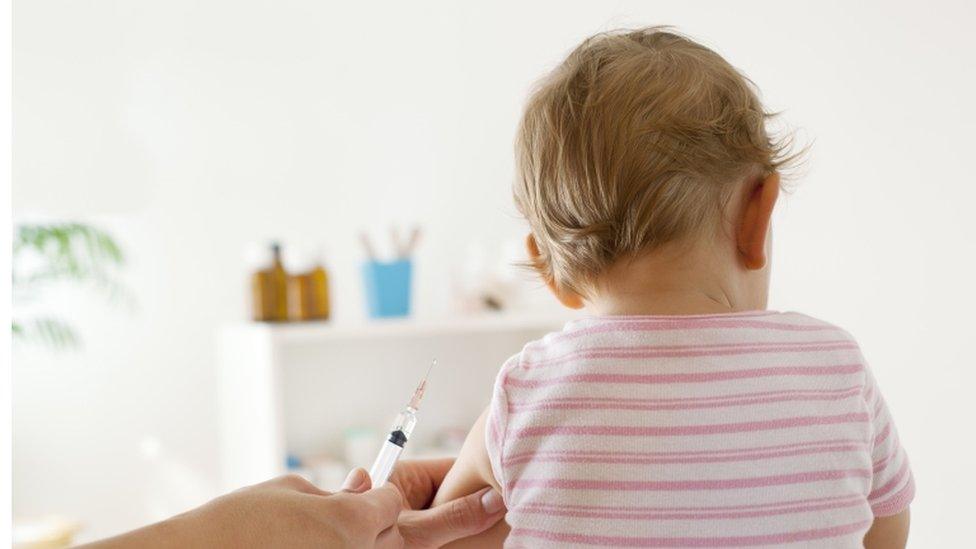Measles warning for children as jab rate falls in England
- Published

More than one in 10 school entry-age children in England are at risk of measles because they have not had their vaccine jabs, data reveals.
Coverage for the two doses of MMR that helps protect five-year-olds against measles, mumps and rubella is currently at 85.5%.
That is the lowest for a decade, and well below the 95% target recommended to stop a resurgence of measles.
Measles is highly contagious, more than Covid, and can cause serious illness.
Nine in every 10 people can catch it if they are unjabbed and exposed.
As well as a distinctive rash, measles can lead to severe complications, such as pneumonia and brain inflammation, and sometimes can be fatal.
Vaccination can remove almost all of these risks.
Two doses of the MMR vaccine give 99% protection against measles and rubella and about 88% protection against mumps.
When a high percentage of the population is protected through vaccination, it becomes harder for the disease to pass between people.
But since the start of the Covid pandemic, there has been a concerning drop in the number of children receiving these vaccines on time.
Experts say some parents may not have realised doctors were still offering appointments, or did not want to burden the NHS.
Coverage of the first dose of the MMR vaccine in two-year-olds has now fallen below 90%. This means that more than one in 10 children under the age of five are not fully protected from measles and are at risk of catching it.
Among all five-year-olds in England, 93.7% have had one dose and 85.5% have had the recommended two doses.
In 2017 the World Health Organization declared that the UK had eliminated measles - meaning that although some cases could still occur, the disease was not widely circulating and spreading.
Measles remains more common in some other countries, meaning it can return to the UK and spread in people who are unvaccinated, if given the chance.
The UK lost its elimination status after cases ticked up again in 2018, with 991 confirmed ones in England and Wales, compared with 284 in 2017.
Measles cases have plummeted during the Covid pandemic, largely because of social distancing and less travel.
But the UK Health Security Agency is concerned that measles could make a comeback in the unvaccinated when restrictions are fully lifted.
It is asking parents and carers to make sure children are up to date with their jabs.
The MMR vaccine is free on the NHS, external when a child turns one, with a second dose offered at about three-and-a-half, before they start nursery or school.
Dr Nikki Kanani, from NHS England, said: "If your child has missed a vaccination, please contact your GP practice to book an appointment as soon as you can to make sure they have maximum protection against disease."
Vaccines minister Maggie Throup added: "If you are unsure whether your child has had their full course of the MMR vaccine, check their red book or talk to your GP. The vaccine is safe, it will protect your child and their school friends and is very easy to access."
Unvaccinated teenagers and adults are eligible too.
Prof Helen Bedford, an expert from London's Great Ormond Street Institute of Child Health, said: "It is never too late for children, young people and young adults to have their MMR vaccine and they can have a second dose even where there has been a long gap since the first."
- Published20 August 2019

- Published10 July 2021

- Published8 April 2021
